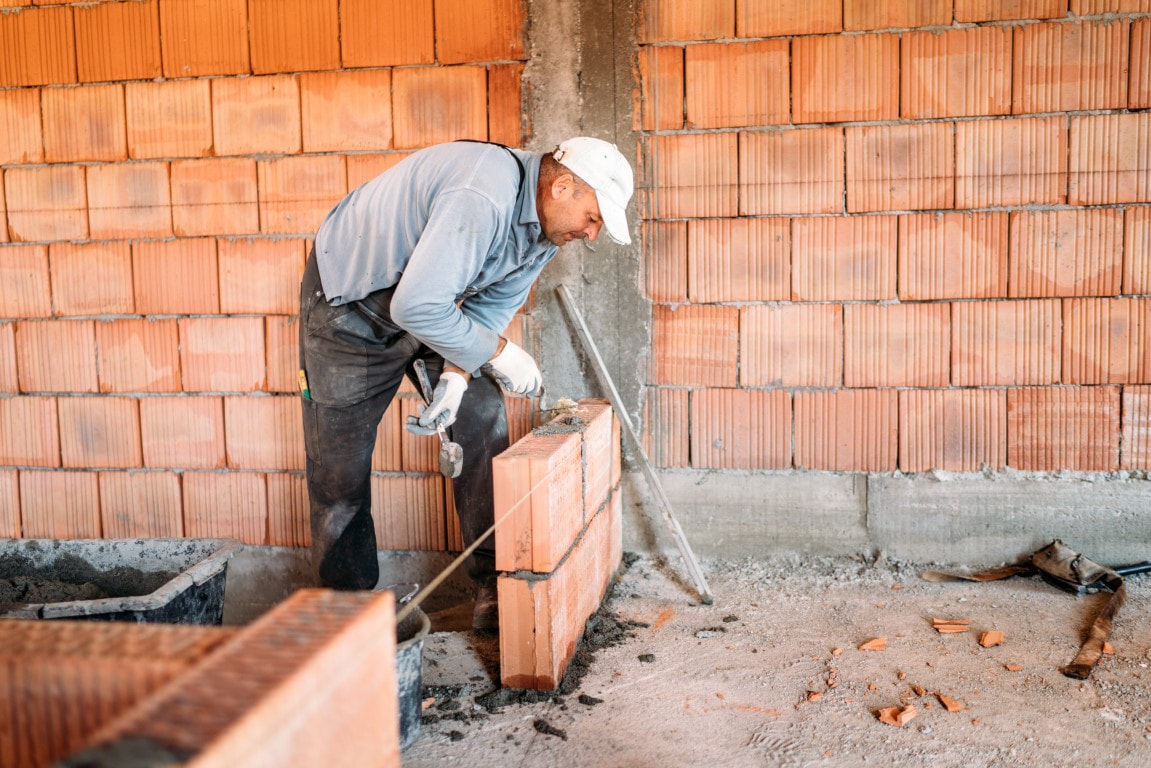Trustworthy Chimney Services: Maintenance and Repairs Done Right
Trustworthy Chimney Services: Maintenance and Repairs Done Right
Blog Article
Unlocking the Keys of Sustainable Masonry Building And Construction Practices for Eco-Friendly Buildings
In the realm of contemporary building and construction, the search of sustainable techniques has come to be paramount. Among the myriad methods to green structure, lasting stonework construction sticks out as a reliable and resilient technique that holds a wide range of untapped potential. From the option of products to cutting-edge building methods, the keys to attaining sustainability within stonework building and construction are complex and appealing. By discovering the advantages, materials, methods, and future patterns of sustainable masonry, a deeper understanding of how these practices can shape the future of green buildings emerges.
Advantages of Lasting Masonry Building And Construction
Embracing lasting stonework construction methods not just decreases ecological impact yet also uses long-term financial benefits to builders and neighborhoods. By utilizing products like recycled bricks, blocks, and stones, builders can considerably decrease the carbon footprint of their projects while promoting resource efficiency. Additionally, sustainable stonework building and construction strategies, such as appropriate insulation and thermal mass homes, can boost energy effectiveness within structures, bring about reduced functional prices with time.
Moreover, the durability and resilience of stonework frameworks contribute to long-lasting financial advantages. Structures constructed using sustainable masonry practices usually need less repair and maintenance, converting to cost financial savings for contractors and home owners. The long life of stonework products likewise makes sure that frameworks remain secure and safe, decreasing the requirement for regular renovations or replacements.
Eco-Friendly Stonework Products
Using environment-friendly stonework materials is a pivotal action in the direction of improving the sustainability of building and construction practices and minimizing environmental impact while taking full advantage of lasting economic benefits. Sustainable stonework products are sourced, produced, and utilized in a fashion that decreases total ecological impact. Materials such as recycled blocks, recovered rock, and sustainable cinder block are becoming increasingly prominent selections for eco-conscious builders. Recycled blocks, for instance, not only divert waste from landfills but additionally need less power to create compared to new bricks. Redeemed stone supplies an unique visual charm while decreasing the need for brand-new quarrying. Lasting concrete blocks integrate recycled accumulations and may include improved insulation properties, adding to power efficiency in buildings.
In addition, natural materials like adobe, rammed earth, and straw bales give superb thermal mass properties, reducing the demand for home heating and cooling down power. These products are typically locally available, advertising local economic situations and minimizing transportation-related carbon discharges. By selecting environmentally friendly masonry products, construction projects can considerably lower their ecological impact and add to the development of much healthier, more lasting constructed atmospheres.
Energy-Efficient Stonework Techniques
Energy performance plays an essential duty in improving the sustainability of masonry building and construction methods. One essential energy-efficient stonework strategy is the usage of thermal mass, which involves integrating dense materials like concrete or block into the building's framework to absorb and save warm.

Advancements in Sustainable Stonework
Recent developments in lasting stonework practices have produced innovative strategies that are improving the building and construction industry. One such innovation is the development of self-healing concrete, which makes use of germs embedded within the concrete to heal fractures autonomously. This breakthrough not just lowers maintenance costs however also enhances the durability of stonework structures, adding to their sustainability.
Another notable development is the usage of recycled aggregates in masonry building - masonry contractor. By incorporating products such as crushed ceramic waste or recycled glass right into concrete mixes, builders can decrease the environmental influence of building tasks while keeping structural integrity. This practice not only diverts waste from land fills yet likewise preserves natural deposits, making it a key advancement in lasting masonry construction
Moreover, the assimilation of electronic design devices, such as Building Info Modeling (BIM), is transforming the means masonry frameworks are planned and created. BIM permits even more precise calculations, decreased material waste, he has a good point and enhanced power effectiveness, a fantastic read inevitably causing more lasting structure techniques. These developments jointly indicate an appealing future for lasting stonework building and construction in the era of eco-friendly buildings.
Future Trends in Stonework Sustainability
With the innovative strides made in sustainable stonework techniques, the future fads in stonework sustainability are poised to further transform the construction market. Among the vital fads forming the future of masonry sustainability is the enhanced combination of modern technology. Advancements such as Building Info Modeling (BIM) and online fact simulations are being made use of to maximize stonework construction processes, resulting in lowered product waste and improved energy efficiency in buildings.
Moreover, the growth of unique sustainable products is established to play a significant role in improving the eco-friendliness of stonework construction. masonry contractor. Developments like self-healing concrete, recycled accumulations, and bio-based binders are acquiring grip for their ability to lessen ecological influence while preserving structural stability

Conclusion
To conclude, sustainable stonework building practices supply many benefits for eco-friendly structures. By using eco-friendly products and energy-efficient methods, stonework can add to a much more sustainable developed environment. Technologies in sustainable stonework are continually being developed to further improve the ecological performance of structures. Looking in the direction of the future, the trend of masonry sustainability is article expected to expand, causing more eco-friendly and energy-efficient construction methods in the years to come.
Report this page